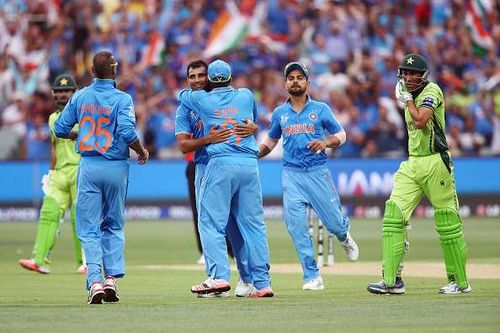
How cricket is the most terrorism affected sport in the world
Can there be any other cricketing event which can match up to the hype of an India-Pakistan cricket encounter? Probably no. Even a few months back not a seat was available at the iconic Eden Gardens as the two arch-rivals locked horns in a high-voltage World T20 group game.
The ticket prices in the black-market were ranging from 5000 to 25000 and unbelievably just before the game it was all sold out. Virat Kohli anchored a tricky run chase and when Mahendra Singh Dhoni hit the winning runs, the screams almost raised the roof of the stadium as the crowd went berserk.
For cricket lovers, the sight was one to behold, one that will be etched in their memory for a long time. But alas! Such matches are not on the cards in the near future courtesy of cross-border terrorism.
On September 18, Pakistan terrorists killed 18 Indian soldiers in an attack staged in the town of Uri in Jammu and Kashmir. As a result, India decided to sever all ties with its neighbours including playing cricket.
"In the context of what has happened even considering such a thought (playing cricket) is not appropriate," Board of Control for Cricket in India president Anurag Thakur said after the Uri attack.
A few days later the BCCI also requested the International Cricket Council (ICC) to not put the two countries together in the same pool of global events. India have been quite firm on their stance against terrorism in the recent past. And they are likely to go ahead with the no-game viewpoint too.
Also Read: Virat Kohli and Shikhar Dhawan pay respect to the martyred Indian soldiers in Uri
As a result, a million fans will have to suffer. Fans, who look forward to such encounters and are loyal followers of the game. And the greatest harm will fall on the game itself which will lose some of its shine because of the no show.
In 2008 the game reached new heights courtesy of the BCCI when they started off with the Indian Premier League (IPL), a tournament with 8 franchises from across the country. The league was a huge hit and later other countries followed the same model to come up with championships of their own.
But the inaugural IPL was a success also because of some Pakistan icons who played in it. The likes of Shoaib Akhtar and Sohail Tanvir had played key roles in popularizing their franchises. But then it all vanished the next year.
The city of Mumbai was attacked on 26th November 2008 where Pakistani terrorists killed almost 157 civilians including policemen. The strike was condemned by all quarters and the Indian government decided they would not allow any Pakistani players to take part in the franchise league tournament.
And it only seems like cricket is being the most affected. There have been instances from the other sports where terrorists have hit only to be hit back harder.
Like for example, the recent terror attacks in France. In November 2015, France was targeted by a militant group who carried on multiple shooting and grenade attacks during 13th night. 90 persons were killed at an Eagles of Death Metal concert and many more near the Stade de France where France was hosting Germany in a friendly. ISIS claimed the responsibility for the attack saying it was an 'act of war’.
In football, France staged the Euro 2016 months after a devastating terror attack.
Though there were security concerns right after the incident, France said they were quite prepared to host the Euro in June this year. There were issues raised by different countries if France would be able to provide for the security arrangements but then again each and every team and their footballers agreed to play in the tourney.
On the other hand, England were scheduled to play Bangladesh this month but the tour almost took a backseat because of a terrorist attack in the country which killed around 18 people three months back. Some players like regular captain Eoin Morgan refused to travel to Bangladesh even when the security agencies had declared it to be “safe.” If football can why can’t cricket?
After the 26/11 attacks in Mumbai India called off their Pakistan tour and it was Sri Lanka who replaced them. En route to a match against Pakistan, the Sri Lankan cricket team bus was attacked by 12 masked gunmen outside a stadium in Lahore. Multiple ammunitions were fired which killed around 8 policemen and two civilians. The strike was allegedly carried out by Lashkar-e-Jhangvi, a militant group with close links to Al-Qaeda.
The event took place even after "presidential-style security” was promised by the Pakistani government. The act also injured six players and two umpires. And till date, no one has ever toured Pakistan. They are forced to play their home matches in the United Arab Emirates (UAE) and it is the PCB’s finances which take the hit. It does seem like it is cricket which is at the receiving end always and it is actually quite true.
